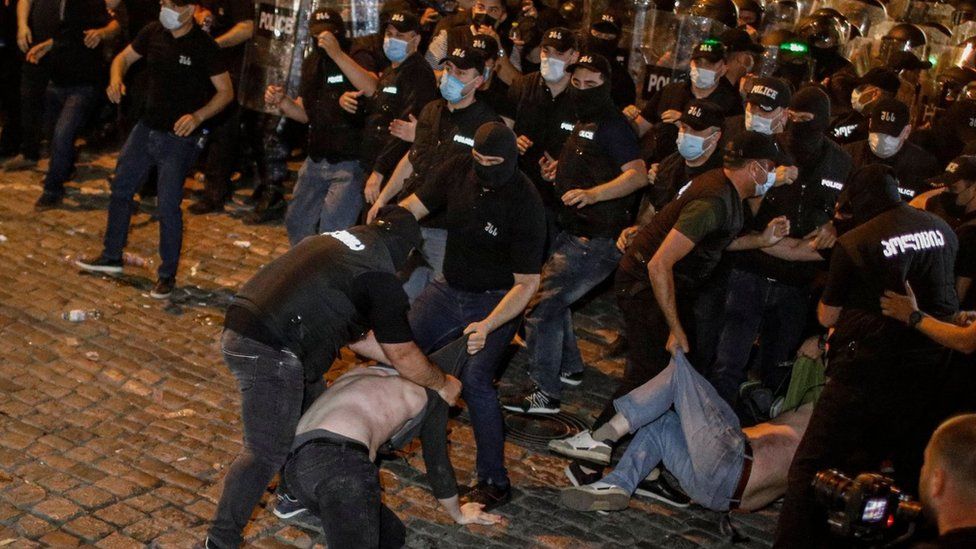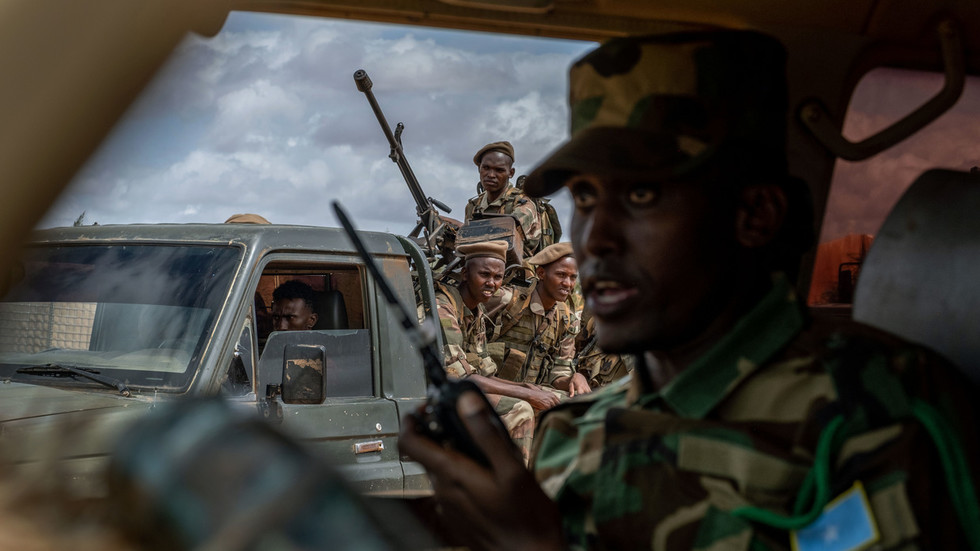 Image source, EPA-EFE/REX/Shutterstock
Image source, EPA-EFE/REX/Shutterstock
A number of protesters were detained during Tuesday's clashes, media reports say
By Jaroslav Lukiv
BBC News
Riot police in Georgia have fired tear gas and water cannon to disperse crowds protesting against a bill seen by the opposition as targeting media freedoms.
Demonstrators threw eggs and bottles at the police outside the parliament in the capital, Tbilisi.
The crowds retreated, but clashes continued on the main Rustaveli Avenue late on Tuesday. A number of people were reportedly injured and detained.
On 17 April, MPs gave their initial backing to the "foreign agent" bill.
Under the bill proposed by the ruling Georgian Dream party, non-governmental organisations (NGOs) and independent media that receive more than 20% of their funding from foreign donors would have to register as organisations "bearing the interests of a foreign power".
They would also be monitored by Georgia's justice ministry and could be forced to share sensitive information - or face hefty fines of up to 25,000 Georgian lari ($9,400; £7,500).
The passing of the bill in its first reading triggered a series of street protests.
On Tuesday, several protesters were injured during the clashes in Tbilisi, media reports say.
Georgia's IPN news agency says that Levan Khabeishvili, chairman of the main opposition party United National Movement, was severely beaten and taken to hospital.
Reuters news agency says that eyewitnesses saw some police officers physically attack protesters.
A number of protesters were reportedly detained.
The Georgian authorities have not publicly commented on the injury claims.
Opponents of the bill demand that the government scrap it, arguing that it is inspired by authoritarian legislation that neighbouring Russia uses to crush dissent.
They are also concerned that the bill could be used to crush critical voices ahead of the parliamentary elections later this year.
Parallels have been drawn with an authoritarian bill which came into force in Russia in 2012, and which the Russian government has since used to marginalise voices challenging the Kremlin - including prominent cultural figures, media organisations and civil society groups, reports the BBC's South Caucasus correspondent, Rayhan Demytrie.
She says many are also worried that such a law will derail Georgia from its path towards the much-coveted status of EU membership which - according to a poll by the US National Democratic Institute - is supported by nearly 80% of Georgians.
Georgia was granted EU candidate status in December 2023, but now both Brussels and Washington have said the adoption of the foreign agents law would be detrimental to Georgia's European ambitions.
A number of European leaders have warned the proposed bill is "incompatible" with European norms and values.
But the government of Georgian Prime Minister Irakli Kobakhidze is standing firm.
Mr Kobakhidze has accused NGOs of attempting to stage revolutions in Georgia twice, of promoting "gay propaganda" and of attacking the Georgian Orthodox Church.
The government insists the bill is about ensuring transparency and rejects the notion that it is against European values - or that Russia is behind the legislation.
On Monday, Georgian Dream organised its own rally in response to the protests. Bidzina Ivanishvili, the party's billionaire founder, addressed the crowds, strongly criticising the West.

 10 months ago
52
10 months ago
52








